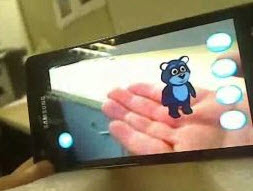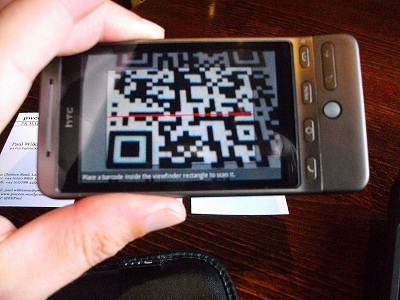Augmented reality set to mesh with mobile commerce
Augmented reality is often considered to be a technology that primarily inhabits the realms of marketing and entertainment. In these two fields, the technology has become exceedingly popular. As augmented reality becomes more popular amongst consumers, retailers are beginning to see the potential of the technology beyond marketing and entertainment. A new survey from the Cardinal Group, a leading provider of shopping technology and security solutions for the retail industry, suggests that mobile commerce may soon merge with augmented reality.
often considered to be a technology that primarily inhabits the realms of marketing and entertainment. In these two fields, the technology has become exceedingly popular. As augmented reality becomes more popular amongst consumers, retailers are beginning to see the potential of the technology beyond marketing and entertainment. A new survey from the Cardinal Group, a leading provider of shopping technology and security solutions for the retail industry, suggests that mobile commerce may soon merge with augmented reality.
Interactive technology growing beyond marketing and entertainment
Augmented reality often garners acclaim because of its dynamic nature. The technology can be used to bring a wide range of digital content to life with high definition, 3D displays. Consumers have come to enjoy the technology for this reason, showing favor for mobile applications that employ augmented reality in an entertaining and practical way. As consumers become more reliant on their mobile devices, augmented reality may begin playing a larger role in the field of mobile commerce, which itself has already become rampantly popular with consumers.
New survey shows consumers are interested in mobile commerce and augmented reality
According to the survey from the Cardinal Group, 55% of shoppers have downloaded a mobile application onto their device, with 51% of these consumers having made a purchase through such applications at some point in their life. The Cardinal Group also employed an augmented reality mirror, called the Virtual Fashion Mirror, at a recent London event, which was used by 87% of those attending. The survey also shows that consumers are growing increasingly interested in the capabilities of augmented reality in mobile commerce.
Future of mobile commerce may become more dynamic
Augmented reality could potential bring a new dynamic to the world of mobile commerce. The retail industry uses augmented reality to sell products in a limited capacity through virtual fashion mirrors similar to the one used by the Cardinal Group. These applications of augmented reality have proven effective in the past, but how the technology will be incorporated into the future of mobile commerce has yet to be seen.

 QR codes seeing rampant use that may soon render them useless
QR codes seeing rampant use that may soon render them useless